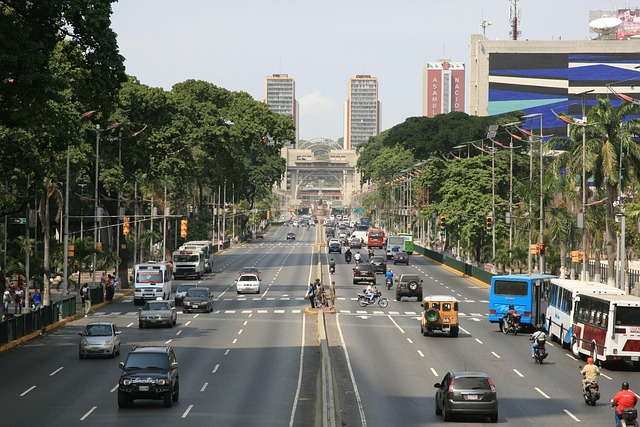 Libertarianism or neoliberalism appeals to many on the right wing. The idea of a minimal or non-existent state, along with low taxes and no bureaucracy. A society where the individual takes on greater responsibility, as there is no state to coddle and take care of us from cradle to grave.
Libertarianism or neoliberalism appeals to many on the right wing. The idea of a minimal or non-existent state, along with low taxes and no bureaucracy. A society where the individual takes on greater responsibility, as there is no state to coddle and take care of us from cradle to grave.
Libertarianism is bourgeois politics on steroids. It’s a caricature of classical liberalism, taking its principles and exaggerating them grossly. It advocates for a so-called night-watchman state that protects citizens from internal and external threats, with no welfare for the poor, no public healthcare, or public schools. Civil society must handle everything else through health insurance, school fees, or cooperative models. Libertarianism has also been accused of promoting hyper-individualism, the attitude that “greed is good, take care of yourself, screw others,” and so on. It also claims that people have the right to move wherever they want, with open borders, which could also cause significant societal challenges.
Well, libertarianism has some points. We do have an overgrown state that meddles in everything. And it becomes very tempting to choose an ideology that preaches the exact opposite. I myself have some libertarian thinking in my background. Politicians inspired by such ideas include Farage, Milei, Paul, and previously Reagan and Thatcher. But as usual, ideologies often go off the rails, with idealists using their writings as sacred guidelines, debating mechanically, without realism or grounding.
Most realize that a true libertarian society would soon result in a Homeric order, like in the Greek heroic sagas, where the king essentially owned his land and, like a war entrepreneur, could gather people for conquest or other adventures. We don’t need to go back to the age of myths; we can look at the Frankish campaigns in the eastern Mediterranean during the Middle Ages, and how the Lusignan family planted sugar cane in Cyprus, gathered workers from surrounding countries, and built factory-like structures for refining and extracting sugar, selling the precious commodity across Europe. The distinction between nobleman, burgher, and peasant was sometimes blurred. These free, armed men could do as they pleased. There were no laws to stop them; they were autonomous. And perhaps this is what some libertarians secretly dream of, who knows?
Not everyone has a built-in moral compass and an IQ over 130, which is what would be required for a soft and cozy libertarian society to thrive. In reality, we would end up with societies dominated by strong, charismatic figures, and it’s not certain we would live in peace and harmony. Free trade and free agreements can only be implemented if someone guarantees them, and that has often been the role of state power. If there is no strong state, each individual must guarantee their interests with their own armed force. Where the ambitious can gather a militia, suppress, and dominate regions, ruling as they see fit.
Libertarianism is best viewed as sabotage against conservative values. Not only are its ideas difficult to implement, but it also leads to sectarianism and division within the bourgeois ranks. Traditional right-wing politics is marginalized and squeezed between neoliberal madness and the socialists’ demands for conformity. That’s why we see right-wing parties today advocating for high taxes while screaming for a free market, lower tariffs, etc. It’s a strange political dead end.
Ayn Rand was, in many ways, the mother of modern neoliberalism. She popularized the ideas and reached younger audiences, although there were other sources of inspiration like Mises, Hayek, Rothbard, and later Hoppe. Rand fled Soviet communism in 1926 in favor of America, and she wrote books that influenced an entire generation. This is, of course, recommended reading for those who haven’t yet acquainted themselves with Rand. There’s a lot of uplifting material for those who want to strengthen their individualistic streak and cultivate personal drive, in contrast to state control and bureaucratization.
But Rand was as progressive as many of her contemporary thinkers. She has the protagonist in The Fountainhead explain that the Parthenon temple in Athens has non-functional decoration and ornamentation and lacks architectural purity. It shows a profound disregard for culture, history and its beauty. She celebrates innovation and progress in Atlas Shrugged, and requires inventors to own the rights to their inventions. How this would work in a society with a minimal state is hard to answer. Note that patents and rights are a kind of restriction on the free market, with the state as the guarantor. In theory, one could build a society where various cooperatives, through intricate collaboration, maintain such regulations, but again, this requires citizens with IQs over 130 and impeccable integrity.
Step into the worldview of the socialists—they see capitalism growing and themselves losing followers because workers are becoming richer and losing interest in struggle and revolution. The best they can do is infiltrate the bourgeoisie and split it. They cannot fight its progress with conventional means. Socialism has nothing to offer; it’s not even a coherent ideology, just the belief in revolution and that a new world will rise from it, and they are willing to do almost anything to get there.
Launching an appealing but impossible bourgeois ideology is, of course, a way forward. The ultimate goal of libertarianism is also a stateless (or nearly stateless) society, just like communism. And there were many neoliberals around the turn of the millennium who sat waiting for the high-tax society to collapse under its own weight, after which they could build something new. Well, there are, of course, more waiting patiently in the shadows. Libertarianism may have inspired many and created hope, but it simultaneously divides capitalism, creates factions, disputes, chaos, and confusion, until the true bourgeois ideology that contributed to the wealth of the Western world weakens, fades away, and is forgotten.







